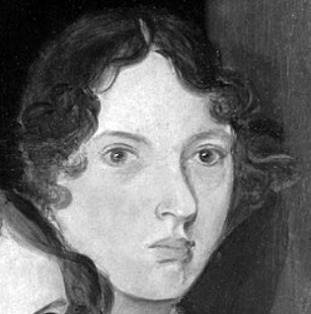Emily: A very biased review
If you’re in the historical fiction orbit, chances are you’ve heard about Emily, the new movie about Emily Brontë.
I saw it — here’s what I think.
Biased and unreliable
First of all, I’m a totally biased and unreliable critic because they pretty much made this movie for me. I’m a sucker for the Brontës. When I was 14, I stayed up till like 4 in the morning reading Jane Eyre. It rocked my world.
This is pretty much the same experience so many teenage girls have had throughout the generations. It easily bleeds over into an interest in the Brontë family, I think, because their story is in itself a tragic novel. How they all died so young, except for their miserable tyrant of a father. How as children they invented worlds together, and countless stories inside them. How they grew up to all write together at a table by a crackling fire and critique each others’ work, pushing each other to be better. Together, I am sure they were greater than they would have been apart.
Ok, enough, I’ll talk about the movie.
Actually talking about the film
Emily contains all the satisfying images of Haworth you could ask for — the brooding moors, the swishing skirts, the cute little writing desks with quill and ink. And, of course, the melancholy characters.
It was contemplative, yet somehow also gripping.
Emma Mackey, the actress who played Emily, was perfect — both feral and shy. It really feels like she’s horrified by the demands of the world but in love with the world she’s created in her head.
Dramatic flair
Going in, I knew nothing except who the film was about. So I was a little surprised when a love affair started happening…with some guy named Mr. Weightman? Who is a curate and works for her father?
The romance was doomed from the start (obviously, for anyone who knows how Emily’s story ends). But I felt so sad about how small Emily’s life was that I found myself rooting for her to get with this guy, even though she clearly didn’t like or respect him that much, just so something would happen to her. We all date the wrong people in our 20s, right?
I kept wondering if there was any possible truth to the storyline. Perhaps a little nugget of information left behind in Emily’s writings that the creators of the film teased out, like in Becoming Jane.
But no. When I got home I immediately researched it. There was an assistant vicar by the name of Mr. Weightman in Haworth at the time. He was handsome and flirtatious, but there’s no indication he so much as looked at Emily.
I found the film to be modern, but not in the (somewhat obnoxious) style of The Great or the new Persuasion or even Bridgerton. I didn’t notice any excessively anachronistic language or music. Rather, the people behaved more freely than they would have at the time, which felt fitting to the story and setting.
I decided to accept that the film is a fiction inspired by Emily’s life and work. A gothic romance with a modern spin. Go in with that mindset, and you’ll come out happy.
What Emily is not about
I did find myself wishing I could watch the three sisters come up with their shared pen names (Charlotte, Emily, and Anne became Currer, Ellis, and Acton Bell), and convince London publishers to take their work and then deal with the controversies around their books.
But Emily is certainly not a biopic. It’s better storytelling than that.
Still, I was a bit surprised a movie hadn’t been made about that. I figured there probably has been at least one. Probably made in the 1940s. Probably starring Katharine Hepburn as all three sisters or something.
So I did a quick Google and found To Walk Invisible: The Brontë Sisters, which is about exactly that. I must have watched it when it came out in 2016. There’s no way I missed it, right? It’s probably a bad sign that I don’t remember it, but I’m planning to watch (or rewatch) it anyway.
Emily
I’ve continued to think about the film long after watching it. I’m a little jealous of Emily’s vivid imagination, even though it made it almost impossible for her to exist in the real world. But it also means that there’s something pure about her, even with all her darkness. She was an artist, and she could never pretend to be anything else. It makes me never want to do something as lame as watch TV again, for starters.
In my post-viewing research, I learned that Emily is considered to be one of the greatest poetic minds ever.
Usually I find poetry to be like watching a flock of birds fly around. There’s a reason they’re doing it, but I have no idea what it is and I can’t concentrate on any one of them long enough to figure it out. But Emily’s poems suck me in like ocean waves.
I’ll leave you with an Emily poem:
The night is darkening round me,
The wild winds coldly blow;
But a tyrant spell has bound me,
And I cannot, cannot go.
The giant trees are bending
Their bare boughs weighed with snow;
The storm is fast descending,
And yet I cannot go.
Clouds beyond clouds above me,
Wastes beyond wastes below;
But nothing drear can move me:
I will not, cannot go.


